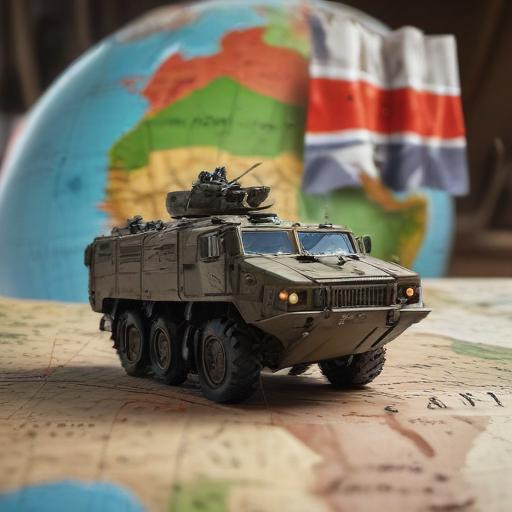Investigating how Moscow is expanding influence in Africa, Russian operatives have adapted their methods two years after Yevgeny Prigozhin’s death, according to an RFI-led investigation with the monitoring group All Eyes on Wagner. The report traces persistent influence campaigns from Angola to Chad and describes a shift toward more discreet, professional operations under a widening state-linked network.
Key recent developments and figures
– Angola, August 7: Two Russian nationals were arrested in Luanda amid protests over rising fuel prices. They face charges including criminal conspiracy, document forgery, terrorism and terror financing. Angolan authorities say the pair operated a propaganda and disinformation network designed to inflame unrest and fund demonstrations. One of the men, Lev Lakshtanov, is identified as the operation’s alleged mastermind. Lakshtanov has a long history in Russian soft power, including founding a cultural NGO called Farol for Portuguese-speaking countries, backed by Rossotrudnichestvo, the state cultural diplomacy agency.
– The Angola case also highlights ambitions to open a Russian cultural centre in Luanda and indicates a pattern of posing as journalists to cultivate contacts within opposition networks and to conduct paid interviews and opinion surveys, before their eventual arrest.
– Chad, September 2024: A parallel set of arrests in N’Djamena involved three Russians and a Belarusian linked to Wagner’s African influence operations. Maksim Shugaley and Samir Seyfan, figures long connected to Moscow’s African projects, were among those detained. The group presented themselves as investors and journalists, offering training and funding to reporters in exchange for pro-Russian coverage. Their actions culminated during the opening of a Russian cultural centre in the capital, another initiative tied to Rossotrudnichestvo.
– Mali and the Africa Corps shift: In Mali, Wagner’s troops have been replaced by Africa Corps as part of Moscow’s reorganization of its African presence. The Kremlin has pursued multiple trade and nuclear-energy deals with Bamako, signaling a broader strategy to maintain influence even as personnel and branding change.
A broader strategic shift
– Under the Africa Initiative, Russia’s Africa-linked activities extend beyond overt Wagner branding. The initiative is closely connected to Africa Corps, the new structure bringing Wagner’s military assets under state control. A broader network of private actors and consultants—many previously tied to Wagner or Russian intelligence—remains active. Western officials and Angolan police reference this circle as “Africa Politology.”
– The evolving toolkit reflects a move toward more discreet, professional operations, with a sustained and broader footprint across the continent. The findings suggest Moscow is leveraging cultural diplomacy, media influence, and intelligence-linked networks to maintain and expand leverage in Africa while adapting to new geopolitical realities since Prigozhin’s death.
Context and implications
– The cases fit into a longer arc dating to the 2020 Mali coup that redrawn regional influence away from traditional Western powers toward Russia. Since then, Wagner’s on-the-ground presence has been reshaped into state-linked arrangements, even as Moscow continues to pursue strategic partnerships, natural resources, and political influence across multiple African states.
– The investigations underscore how Russia blends cultural initiatives, journalism-facing activities, and informal political engagement with more covert influence efforts. The use of NGOs, cultural centers, media-style outreach, and recruitment of Russian-speaking locals shows a diversified approach aimed at sustainable presence rather than flashy, short-term campaigns.
What to watch next
– The expansion of Russian cultural centers and the ongoing footprint of Rossotrudnichestvo in Africa will be key indicators of Moscow’s soft power ambitions.
– The Africa Initiative and Africa Corps will shape how Russia deploys assets and coordinates with state channels to pursue strategic goals, even as deniable or private-sector actors operate behind the scenes.
– Monitoring and policing of disinformation networks in more capitals could reveal how authorities respond to these tactics and where countermeasures gain traction.
A hopeful, constructive note
– The attention these investigations bring can bolster transparency and accountability, prompting stronger oversight of foreign influence operations. By documenting these tactics, African governments, regional bodies, and international partners can coordinate defenses against disinformation and better safeguard the integrity of political processes and media landscapes.
Bottom line
– The landscape of Russian influence in Africa is evolving toward a more nuanced, state-connected framework that relies on a mix of cultural diplomacy, media engagement, private networks, and formal security arrangements. As Moscow refines its approach under the Africa Initiative and Africa Corps, the balance between influence and oversight will be crucial to observe in the months ahead.
